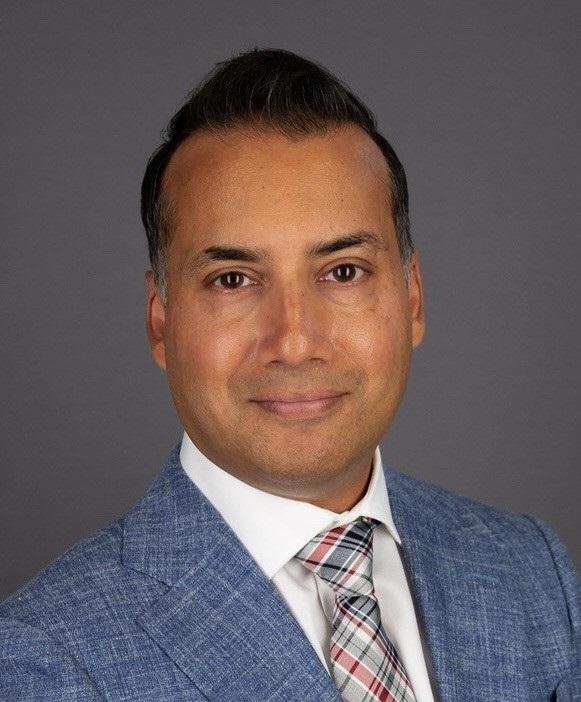
- February 15, 2026 6:27 am
- California

Indrajit Choudhuri
Founder and CEO
Healthcare is one of the least digitized industries and is in the bottom 4 of the 20 major industries globally, according to a McKinsey report from 2016 and cited in the Harvard Business Review. While healthcare data as an asset is a new concept, most organizations have digitally evolved this aspect of their operations, with the near ubiquitous conversion from paper records to electronic medical record systems; however, what is being done with the data and its utilization remains analog. Digitization of the processes underlies the true transformative power of digitization.
A recent example is a dramatic adoption of video in place of in-person visits, aka telehealth or telemedicine, in the wake of the COVID pandemic. How the assets are used and what can be done with them is an area that is ripe for discovery. Today, clinicians cannot find all the information they need to provide the best care for their patients because it is scattered across multiple websites, portals, electronic systems, faxes, and 3rd party documents like medical, societal guidelines, and insurance regulations. So digitalization has also resulted in distributed and dispersed data. MediCardia is integrating and organizing the data from all these myriad sources to show doctors and clinicians not only what they wanted to see but what they didn’t realize they needed to know.
MediCardia is the first digital health platform that aggregates, organizes, and operationalizes comprehensive clinical data for the clinician. Their expert system clinical architecture applies automation to data to drive quality and revenue in the transition to value-based care.
“Our mission is to drive a revolution in digital health, utilizing the latest technologies to drive connected precision medicine for the prevention and optimized continuous care of disease and health by creating provider-centric tools for patient-centric care,” says Indrajit Choudhuri, Founder and CEO of MediCardia.
The MediCardia interface is fundamentally not a replacement for an EMR. However, the data is made available and presented how clinicians use and think about this information. In addition, because their telehealth technology is embedded directly into the platform, users do not need to launch a separate application – no more confusing windows to move around that may be hiding something important on the screen. During video screen share, a doctor can show a patient a data point, graph, or image while speaking directly to them. It’s fundamentally a different type of telehealth experience. In addition, many of the manual steps traditional EMRs require are automated to remove this clerical burden.
According to Indrajit, most healthcare solutions address an important niche market, offer a unique solution for a specific use case, and provide value to a single stakeholder. This is smart and abides by the mantra of startups. However, these startups need to protect themselves from other players seeking to erode their market share because, by definition, the focused technology does not create a significant first-mover advantage. “So in that regard, we are the anti-startup, because we are solving multiple problems for multiple stakeholders. Also, we are not trying to thwart competition, rather we are working with value-adding, mission aligned technology partners, that together allow us to accelerate delivering our platform to market with the force-multiplying effect of multiple organizations pooling their resources.”
MediCardia doesn’t try to apply healthcare technologies to their healthcare solution. They learn from technologies that have been successful outside healthcare and look for unique ways to use them to solve healthcare problems. Healthcare as an industry needs disruption to the core – this cannot be done by simply repurposing existing solutions already internal to the industry. Today’s most important trends in the consumer market are related to personalization and availability of resources or information on-demand. “Think about how Netflix changed the movie rental industry and leveraged the internet to allow a user to rent a movie digitally, from the comfort of their own home. We are applying a similar approach to how patients can aggregate their own data and also share their data for second opinions and participation in clinical trials, except in this case the patient or consumer is the one sharing their data – they are Netflix,” explains Indrajit. “But we then invert that model, because it is the patient or consumer who has controls over who sees their data. This has the effect of completely reversing the power relationship in healthcare, in favor of the patient. It also makes HIPAA compliance a lot easier for provider organizations, because only people who are supposed to see a patient’s record are granted access.”
It is pertinent to mention that the most pressing need in healthcare today is the ability to radically increase access to care and provide high-quality care at scale. To this end, the company is excited to be building the MediCardia Precision Medicine platform (PMP). The fundamental technology underlying the PMP is the MediCardia Clinical Intelligence Engine (CIE). The MediCardia CIE can suggest care decisions based on multiple sources of medical evidence and rank these suggestions based on the quantitated impact on health and outcomes. As a result, every medical visit, whether in person or virtual, is enhanced by the platform’s assistance to guide care towards the highest quality interventions, indicating the appropriateness of care and performance, which are used to improve revenue in the transition to value-based care.
The initial components of the platform include telehealth, cardiac risk models, a proprietary health score, and a remote vital sign and biomarker monitoring capability (MediCardia Virtuas RPM) that is integrated with Epic EMR. Telehealth and Virtuas RPM technology are the first aspects of the complete platform deployed to provide highly granular data on patients’ physiology while at home that generally can only be obtained in the office or hospital setting. The platform provides insights into the changes in human physiology, indicating health or acute decompensation and providing the important lead time to prevent medical complications and even death. So far, users have managed a range of conditions and risk factors like HTN and obesity to more complex disease states like congestive heart failure.
MediCardia is a future state platform that is entering the market today. It is bringing to market multiple product lines that enhance care quality and care experience for patients and providers. The technology roadmap includes a cardiac monitoring bundle for consumer wearables and home medical devices; patch cardiac wearable monitors and implanted cardiac devices; the clinical platform that visualizes the health information in a single pane of glass view, the knowledge and research platform that provides the intelligence and care suggestions to assist the provider, and the consumer platform that puts the power of all this health information and technology into the hands of the people.

“Our mission is to drive a revolution in digital health, utilizing the latest technologies to drive connected precision medicine for the prevention and optimized continuous care of disease and health by creating provider-centric tools for patient-centric care.”